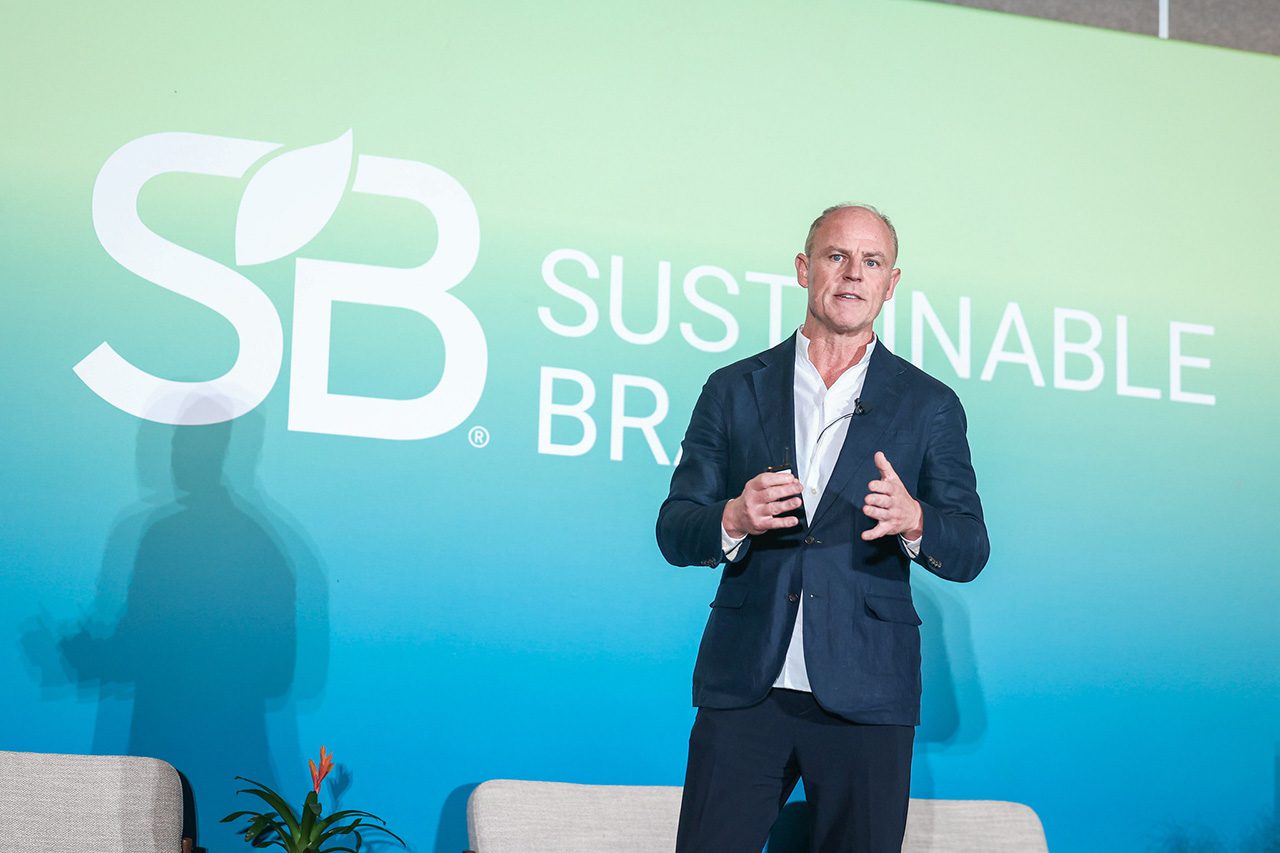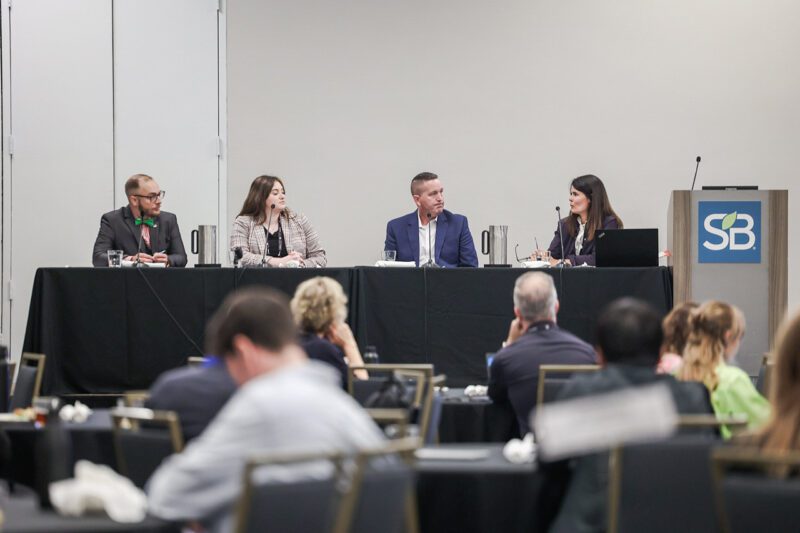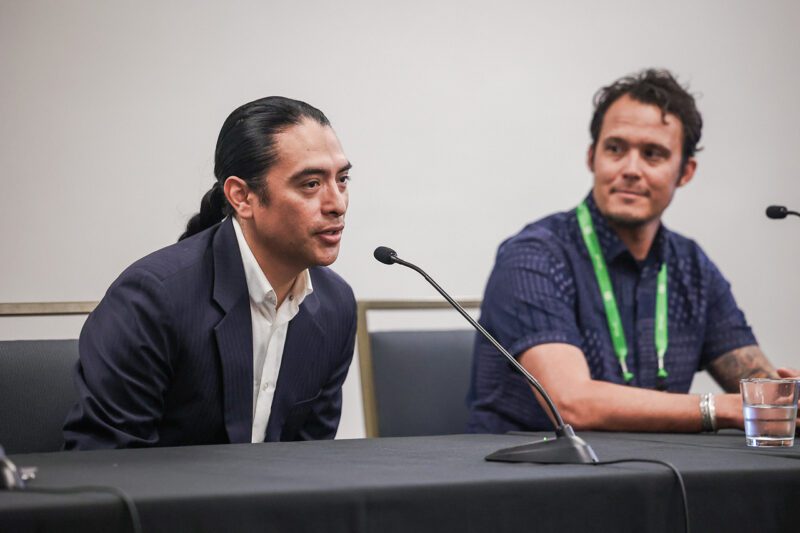Sovereign Seeds: Reclaiming MENA’s Agricultural Future
Reviving local food systems and unlocking rural prosperity
Consumer giants reimagine supply chains and customer engagement

Sustainable Brands 2024 gathered prominent consumer brands to exchange insights, collaborate, and explore solutions to pressing social and environmental challenges. Key themes emerged from these discussions, highlighting innovative approaches and shared goals for sustainability.
There is a well-recognized gap between consumers’ stated preferences for sustainable products and their actual purchasing behaviors. While many express a desire to buy sustainably, this isn’t consistently reflected in their choices. Several speakers discussed how their brands are addressing this challenge, actively working to shift consumer behavior and make sustainable options the default. Consumers are increasingly asking companies not only to improve their own practices but to support them in leading more sustainable lifestyles.

Honda panel with: Alyssa Barbuto – Environmental Sustainability Project Leader, Brian Bautsch – Director of Safety Strategy, David Perzynski – Assistant Manager, Hydrogen Solutions Business Development, and Freya Williams – Founder Green Giants
REI wanted to understand why people don’t take sustainability driven choices and conducted extensive research with 2,500 people. Roma McCaig, Chief Public Affairs and Impact Officer at REI reported, “In today’s culture, doing good doesn’t always feel good because they are forced to give something up, and they feel depressed or overwhelmed by news, which brings up painful emotions. When brands and media focus on fear-driven messaging, it creates confusion about what to do, which leads to inaction.” REI took these insights and paired it with an understanding that when people connect more with nature, they will be more likely to take action to preserve places they care about. This resulted in changing their marketing approach from one centered on REI to creating a community that shares a love of the outdoors, aiming to spark joy and drive a human connection. This shifted the way consumers are engaging with their brand and each other.
Amazon is advancing sustainability through its Climate Pledge Friendly certification, which highlights products that meet one or more qualifying sustainability standards. By providing this information at the point of sale, Amazon encourages consumers to make more sustainable choices. Currently, over 1 billion products carry this certification, and Amazon tracks a “customer switch” metric, which measures customers switching from conventional to certified products as a key indicator of success. Since 2021, over 100 million customers have made this switch, resulting in a 12% sales increase for certified products. This trend suggests that brands embracing certification can achieve higher revenues alongside their sustainability efforts.
When people connect more with nature, they will be more likely to take action to preserve places they care about.
Procter & Gamble takes a unique approach to sustainability by focusing on solving real customer needs rather than simply promoting sustainability itself. By understanding the specific challenges their customers face, they create solutions that are both sustainable and customer-centered. Frantz Beznik, R&D Director and Global Head of Sustainable Innovation, emphasized, “You have to make sustainability irresistible.” One example is the “50 Liter Home” project, a collaboration with partners to develop products that reduce water consumption while addressing customer needs and enhancing the overall experience.
A key theme of the event was the critical role suppliers play in driving sustainability and how companies are integrating sustainable practices across their entire product lifecycle and strategy. This includes efforts to reduce environmental impacts, enhance supplier diversity, foster economic empowerment, and ensure fair working conditions. Building resilient supply chains begins with understanding suppliers and identifying the challenges that need addressing.

Estakio Beltran – Partnerships Advisor (IPA), Department of the Interior, Office of Strategic Partnerships – Indian Affairs, with Ben Jacobs – Co-founder Tocabe
For large companies, complex supply chains require transparency, traceability, and community engagement. “If we don’t know our supply chain, how can we drive change?” asked Alison Ward, CEO of Cotton Connect. She emphasized that solutions are often rooted in local communities, and it’s essential for brands to listen and collaborate rather than dictate. By engaging meaningfully with communities, companies can implement solutions that create the most substantial impact.
Another key theme in supply chain discussions was fostering economic empowerment in underserved communities. Indigenous communities, often excluded from traditional supply chains, can benefit significantly when companies engage with them meaningfully and increase supply chain transparency. Estakio Beltran, Partnerships Advisor at the U.S. Department of the Interior, highlighted how public-private partnerships are empowering tribal communities, helping people earn a living wage and restore economic sovereignty. He urged brands to genuinely expand their support for tribal partners to drive sustainable, impactful change.
For Honda, as for many companies at the event, Scope 3 emissions represent 78% of total emissions. Alyssa Barbuto, Environmental Sustainability Project Leader, noted, “We have gone as far as we can go alone; now we need to collaborate and step outside our comfort zone. To reach our goals, we must put competition aside and pursue change as an industry.” Honda recognizes that while they are just one customer to their suppliers, a united industry approach—asking for standardized data and collective action—can encourage suppliers to drive meaningful change.
Logitech is embedding sustainability into its product design, rethinking every aspect with an eye on cost, user experience, and environmental impact. This comprehensive approach has led to a 24% reduction in Scope 1, 2, and 3 emissions, resulting in products designed for circularity and recyclability.
A key takeaway from the discussions was the importance of brands aligning their public positions with their core values. Venturing into issues not deeply rooted in brand values can lead to accusations of greenwashing or insincerity. In terms of corporate political responsibility, companies should consider whether they’re prepared to uphold their stance if it becomes controversial. Brands must assess their legitimacy on a topic, as well as their commitment to transparency and accountability. Rather than speaking on every issue, brands are encouraged to focus on topics central to their mission, ensuring authenticity. If the “why” behind an action isn’t clear, it’s best not to proceed.
Companies that retract DEI commitments under shareholder pressure risk losing both traction and credibility.
Intentionality from the outset enables brands to remain true to their commitments and withstand potential backlash from consumers or activist shareholders. For instance, companies that retract DEI commitments under shareholder pressure risk losing both traction and credibility. However, those able to clearly articulate the business value of maintaining these commitments can strengthen their position and build trust.

Consumer-facing multinationals face significant challenges in advancing sustainability. The complexity involved in making a meaningful impact is immense, yet it’s encouraging to see the concrete actions companies are taking across supply chains, customer engagement, and internal operations.
Related Content
Comments
Deep Dives

Featuring
Clarisse Awamengwi
IE Correspondent
July 17 - 12:00 PM EST

Featuring
Russell McLeod
July 24 - 12:00 PM EST
RECENT
Editor's Picks
Webinars
News & Events
Subscribe to our newsletter to receive updates about new Magazine content and upcoming webinars, deep dives, and events.
Become a Premium Member to access the full library of webinars and deep dives, exclusive membership portal, member directory, message board, and curated live chats.
At Impact Entrepreneur, we champion fearless, independent journalism and education, spotlighting the inspiring changemakers building the Impact Economy. Diversity, equity, sustainability, and democracy face unprecedented threats from misinformation, powerful interests, and systemic inequities.
We believe a sustainable and equitable future is possible—but we can't achieve it without your help. Our independent voice depends entirely on support from changemakers like you.
Please step up today. Your donation—no matter the size—ensures we continue delivering impactful journalism and education that push boundaries and hold power accountable.
Join us in protecting what truly matters. It only takes a minute to make a real difference.
0 Comments